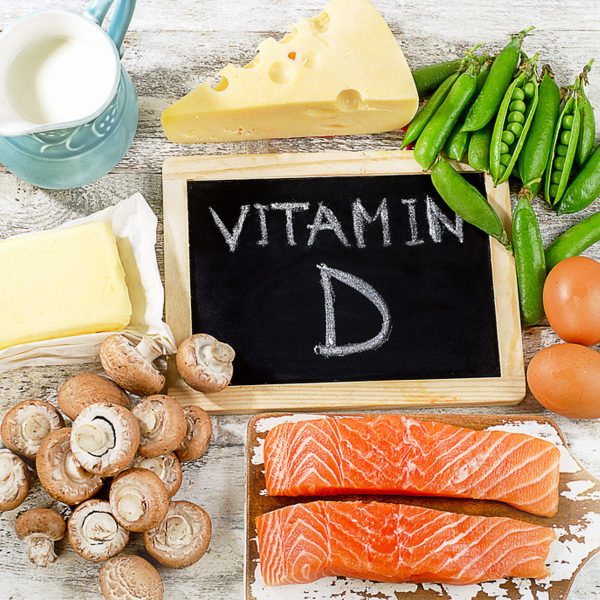Vitamin D is a vital vitamin that has been touted as being beneficial to improving fertility rates, as well as reducing cancer risks, creating strong teeth and bones, and treating depression naturally.
It is a fat-soluble vitamin that is present in a variety of forms, although most of them are considered to be inactive inside the body and actually have limited functionality.
However, the reason it is so essential to fertility and getting pregnant is because it is needed to help the body create sex hormones. The correct amount of sex hormones in your body is vital to your overall well-being, otherwise you may suffer PMS, PCOS, and sadly, infertility.
Regulating cell growth is another key function of Vitamin D.
Yale University School of Medicine conducted a study of 67 infertile women, where it was discovered that a mere 7% had normal Vitamin D levels. The remainder of the women either had insufficient levels of Vitamin D or they had clinical deficiency of Vitamin D in their bodies.
One of the researchers at Yale, Dr Lubna Pal, who is also the Director of the Program for Polycystic Ovarian Syndrome (PCOS) at the Yale Fertility Center, was quoted as saying:
“Of note, not a single patient with either ovulatory disturbance or polycystic ovary syndrome demonstrated normal Vitamin D levels; 39 per cent of those with ovulatory disturbance and 38 per cent of those with PCOS had serum 25OHD levels consistent with deficiency.”
“Given the pandemic of Vitamin D insufficiency, if indeed our observations are substantiated, aggressive repletion with Vitamin D may emerge as an alternative approach to facilitate ovulation resumption with minimal to no risk for ovarian hyperstimulation syndrome or multiple pregnancies.”
Based on this study, nearly 40% of the women who had ovulatory dysfunction also had a clinical deficiency in Vitamin D. Therefore, it is easy to understand how important Vitamin D is to a woman’s fertility.
One of the easiest ways of obtaining Vitamin D is by eating eggs, fatty fish, and dairy, as well as taking cod liver oil.
Another option is to take an actual Vitamin D supplement that you can purchase over the counter. However, you should read the label very carefully to make sure that you purchasing Vitamin D3 and not Vitamin D2. Most commercial prenatal vitamins do not have enough Vitamin D in them, according to the American Journal of Clinical Nutrition, so it is best to supplement with a whole food fertility multivitamin.
Vitamin D can also be obtained for free by sitting out in the sun for 15 to 20 minutes per day. Forget using sun block though, as it will actually block the ultraviolet light that is needed to produce Vitamin D. The warm sun helps your skin to create Vitamin D3 that is then transformed into the active hormone form of Vitamin D by the kidneys and the liver. In fact, by being out in the sun for just a few minutes a day, a women’s body can create between 10,000 to 25,000 IU of Vitamin D.
- Vitamin D and fertility (why you need it AND the dangers of supplementation). (n.d.). Retrieved from: https://www.naturalfertilityandwellness.com/vitamin-d-and-fertility/
- Pal, L., Berry, A., Coraluzzi, L., Kustan, E., Danton, C., Shaw, J., & Taylor, H. (2012). Therapeutic implications of vitamin D and calcium in overweight women with polycystic ovary syndrome. Gynecological Endocrinology, 28(12), 965-968. doi:10.3109/09513590.2012.696753. Retrieved from: https://www.tandfonline.com/doi/abs/10.3109/09513590.2012.696753?journalCode=igye20
- Hollis, B. W., & Wagner, C. L. (2004). Assessment of Dietary Vitamin D Requirements During Pregnancy and Lactation. American Journal of Clinical Nutrition, Vol. 79, No. 5 , 717 – 726. Retrieved from: https://academic.oup.com/ajcn/article/79/5/717/4690181
- Kain, E. (2009, October 7). Vitamin D: The Wonder Vitamin That May Help Me Conceive. Retrieved from: living.health.com/2009/10/07/vitamin-d-conception/
- Smith, R. (2008, November 11). Vitamin D can aid fertility . Retrieved from: telegraph.co.uk/health/women_shealth/3434420/Vitamin-D-can-aid-fertility.html





